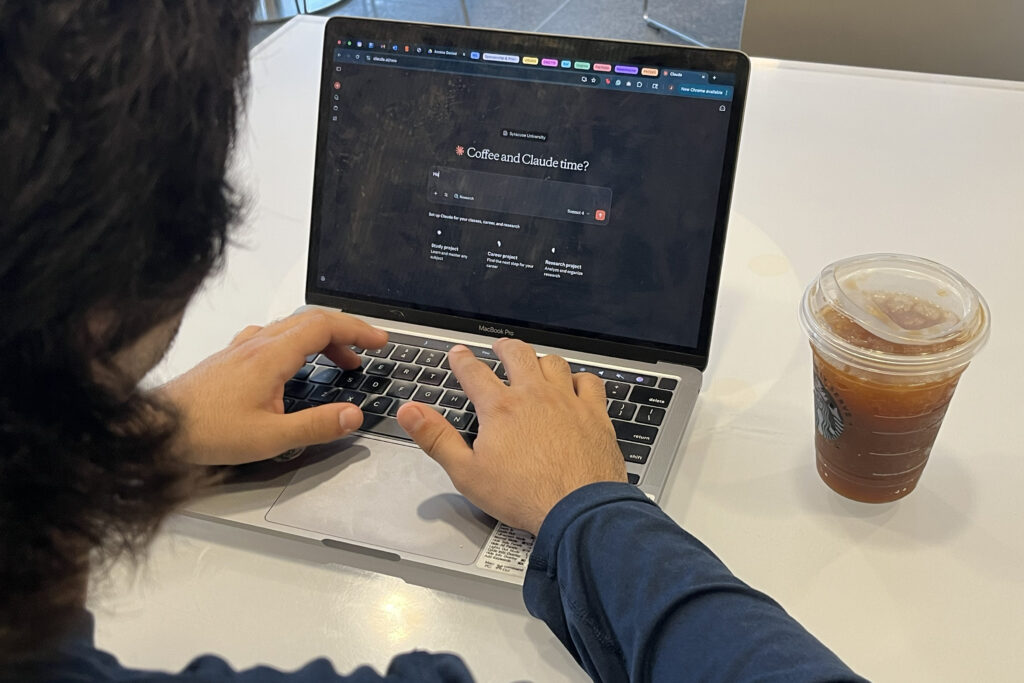‘Leveling the playing field’: SU reacts to free AI membership announcement
SU announces free AI tool for students, faculty
Syracuse University announced a partnership with Anthropic, an artificial intelligence group, but it’s garnering mixed reactions.

Jordan Booker, a Newhouse broadcast and digital journalism graduate student, was surprised to hear that AI tools are now free for Syracuse University students, staff and faculty as of Wednesday.
“That can be used very interestingly, by all students, no matter their major or interest,” Booker said. “You could fake the graphic design work. You could fake your research, but it can also be a useful tool.”
Syracuse University announced its partnership with Anthropic, an artificial intelligence research and safety company on Monday, promising students, faculty and staff free access to Claude Enterprise.
Some professors and students have expressed excitement and enthusiasm about the university’s partnership.
“By giving access to all students, staff, and faculty, the school is leveling the playing field. Everyone can use it and experiment, not just those who pay for subscriptions,” said Adam Peruta, professor of magazine, news and digital journalism.
Peruta shared beneficial uses of AI: it can support brainstorming, drafting and data analysis. Overall, it will eliminate busy work and grant students more time to think deeply and creatively, he said.
Orion Goodman is the president of CuseAi, a club focused on AI inclusivity. She said that compared to ChatGPT, Claude Pro’s abilities are impressive.
“I tried the same things with ChatGPT but it doesn’t know how much to tell you and it hasn’t been trained to teach. It’s just been trained to give answers,” Goodman said.
Bei Yu, professor at the school of information studies, said she sees artificial intelligence as a tool that helps her students understand and complete tasks they may struggle to do on their own.
“I have students who are very good programmers already and they refuse to use programming help like AI tools because they’re afraid that gradually they’re going to forget about the syntax and become dependent on these tools,” Yu said. “So, they kind of consciously keep a distance.”
Jian Qin, professor of library and information sciences, said identifying the risks of AI is the first step to preventing future complications with it.
“Our responsibility is to teach students how to recognize what are the choices we should value based on the virtue or what’s good for both society and themselves,” she said. “Don’t blindly trust whatever AI provides. You must verify and evaluate the results.”
The partnership with the university and Anthropic marks a new chapter with technology for students, faculty and staff. However, it is important for the school to teach responsibility and safety to steer clear of issues, said Peruta.
“We need to avoid being overly restrictive; the goal is to teach responsible, professional use, not ban it,” he said.
